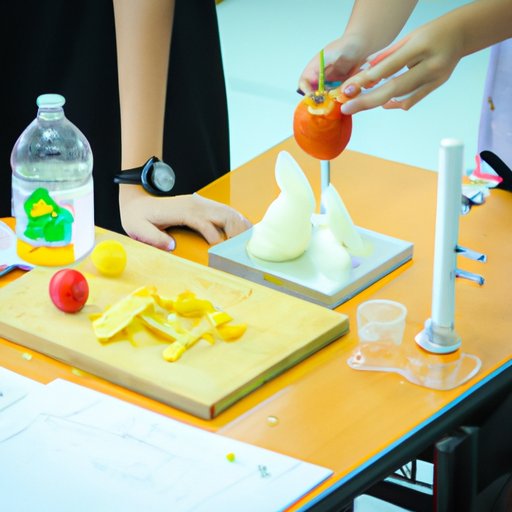Introduction
Food science is an interdisciplinary field that combines chemistry, biology, physics, engineering, and other sciences to study the physical, chemical, and biological aspects of food production and consumption. It focuses on understanding the properties and components of food, as well as how they can be improved, developed, and used in the processing and manufacturing of food products. With a degree in food science, you can pursue a wide range of career opportunities in the food industry.
Working in Food Manufacturing and Processing
One of the most common career paths for those with a degree in food science is working in the food manufacturing and processing industry. This involves using the principles of food science to oversee the production and packaging of food products. Food scientists in this field are responsible for developing and implementing processes to ensure food safety and quality, as well as creating and evaluating new products. They also may work on projects to improve existing products or develop new ones. Examples of job types in food manufacturing and processing include food engineer, food technologist, food scientist, and quality assurance manager.

Developing New Foods and Beverages
Another way to use a food science degree is to develop new foods and beverages. Food scientists in this field are responsible for researching, designing, and developing new products, as well as testing them for flavor, texture, color, and other attributes. They must also consider the potential health benefits and risks associated with certain ingredients and processes. Examples of job types in this field include food product developer, sensory analyst, flavor chemist, and food technologist.
Testing, Evaluating, and Improving Food Quality
Food scientists can also work in the field of food quality and safety. These professionals are responsible for ensuring that food products meet the required standards for safety and quality. This includes testing food products, evaluating their safety and quality, and recommending changes or improvements. Examples of job types in this field include food safety manager, quality control technician, food inspector, and laboratory technician.
Specializing in Food Nutrition and Safety
Food scientists can also specialize in food nutrition and safety. This involves developing and evaluating food products and processes to ensure they meet nutritional and safety standards. They may also conduct research on food nutrition and safety issues, such as the effects of various ingredients on health. Examples of job types in this field include nutritionist, dietitian, food safety specialist, and food microbiologist.
Becoming a Food Scientist Consultant
Food scientists can also become consultants, providing advice and expertise to businesses in the food industry. They may provide assistance in areas such as product development, process improvement, food safety, and nutrition. Examples of job types in this field include food scientist consultant, process development consultant, and food safety consultant.

Pursuing Research and Development in the Food Industry
Food scientists can also pursue research and development in the food industry. This involves conducting scientific studies and experiments to advance the knowledge and understanding of food science. They may also develop new processes and products, or evaluate existing ones. Examples of job types in this field include research and development scientist, food chemist, and food technology researcher.

Teaching Food Science at the University Level
Finally, food scientists can teach food science at the university level. This involves developing course materials, delivering lectures, and conducting research. They may also provide academic and career guidance to students. Examples of job types in this field include professor, lecturer, and instructor.
Conclusion
A degree in food science provides many exciting career opportunities in the food industry. From working in food manufacturing and processing to developing new foods and beverages, testing and improving food quality, specializing in food nutrition and safety, becoming a consultant, pursuing research and development, and teaching food science at the university level, the possibilities are endless. With a degree in food science, you can make a positive impact on the world and help ensure safe, nutritious, and delicious food for everyone.
(Note: Is this article not meeting your expectations? Do you have knowledge or insights to share? Unlock new opportunities and expand your reach by joining our authors team. Click Registration to join us and share your expertise with our readers.)
